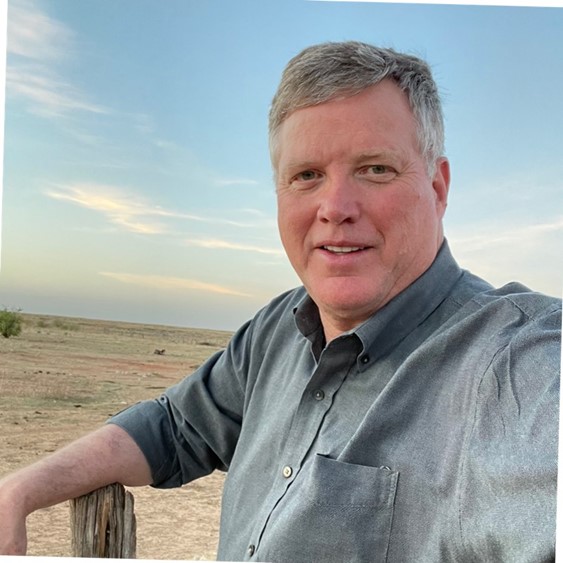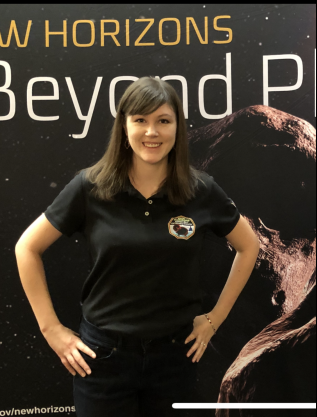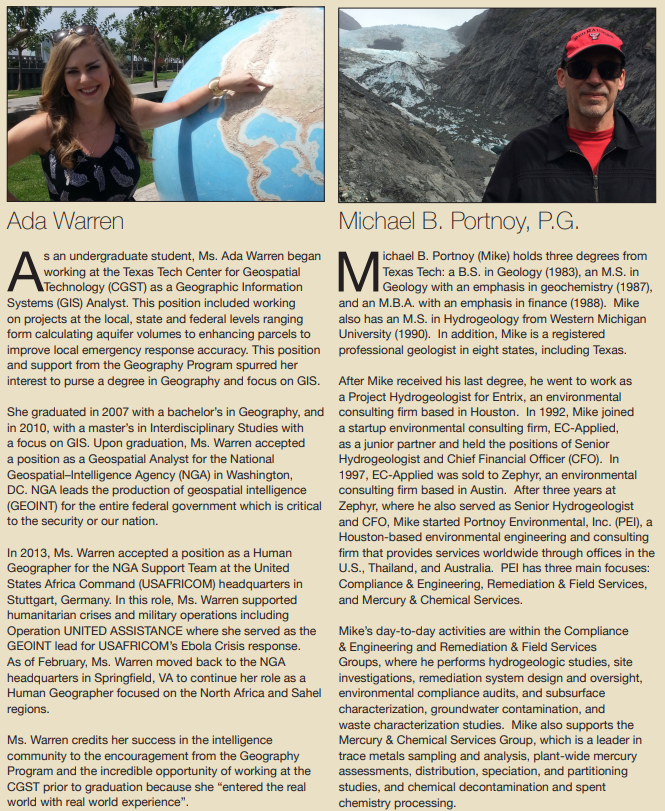Alumni Spotlight Page
Matt Williams (BS GEOS '81)
Hailing from Plains, TX, Matt Williams began his career at Texas Tech University as an Electrical Engineering major and by his own admission he was just as interested in the subject as some of his classmates. While evaluating other majors, he saw pictures of an Antarctica expedition in the Geology building and became interested in study geology. Matt also comes from a long line of Texas Tech alums as his sister, mom, aunts, and uncles went to Texas Tech. One of Matt's uncles also studied geology, graduating in the mid-1950's from Texas Tech.
Matt graduated from Texas Tech in 1981 and pursued a master's degree at Texas A&M University, completing that degree in 1983. Matt attributes his time at Texas Tech to his preparedness in industry. Matt's broad education along with classes filled with students with different backgrounds gave Matt the confidence he needed to prepare for his future career in the field, especially in terms of communication with those who had a different background.
Upon entering the field, Matt attributes a summer position from an on-campus interview much like the department continues to support to this day. He was also able to explore Alaska during the late 1980's as a Senior Geologist stationed in Anchorage, AK. Matt has also had the opportunity to work in Siberia and in the Middle East during his time in the field. When asked about some of his accomplishments in the field of geology, Matt points to providing technical geologic and management support to building the producing side of an ongoing Liquified Natural Gas (LNG) startup business which included assessment and starting geologic evaluation for Carbon Capture project which customers and others now require (low/zero carbon solutions). He was also involved and developed some of the “Shale” plays in North America in both the Haynesville Shale in Texas/ Louisiana and Marcellus in Pennsylvania.
Currently, Matt serves as the President of the College of Arts and Sciences Dean's Advisory Board. The board is designed to provide support to the Dean of the College of Arts and Sciences in providing an avenue for alumni engagement. As Matt puts it, “We are here to support her goals in any way that we can.” Matt has also served as a member of the board for the past 8 years and has recently retired from his latest professional role and is looking forward to remaining involved with the College of Arts and Sciences as well as the Department of Geosciences.
When asked about any advice he would give students and young alumni, Matt says that students should take advantage of opportunities such as talks, seminars and other things that allow students to meet others outside of their usual group. Matt also says that it is important to continue to pursue knowledge and to find something you are good at and get paid for! Finally, Matt says life, business, and career are a team sport and points to his relationships as being one of the reasons he has had so much success in his career. The Department of Geosciences is proud of Matt's accomplishments, and we look forward to partnering with Matt in the near future.
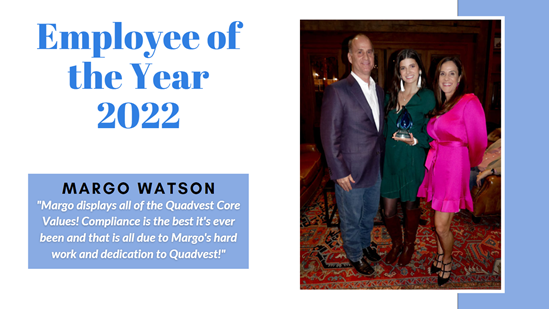
Margo Watson (BS GEOS '20)
Margo Watson, a 2020 graduate receiving a BS in Geosciences, recently received two awards from her company, Quadvest. In Margo's first year with the company, she was awarded Employee of the Quarter as well as Employee of the Year in 2022!
Margo (pictured on the left) writes: Quadvest is a water and sewer utility company based in Northwest Houston. We own and operate about 40 water treatment plants and 30 wastewater treatment plants covering 7 different counties. My primary role is to make sure our plants are in environmental compliance with TCEQ, EPA, and County regulations. I work closely with our engineering and construction teams to ensure any environmental issues that come up are addressed correctly. I get to enjoy office and field work throughout my work week. Water is a life essential utility and there will always be a need to have clean drinking water.
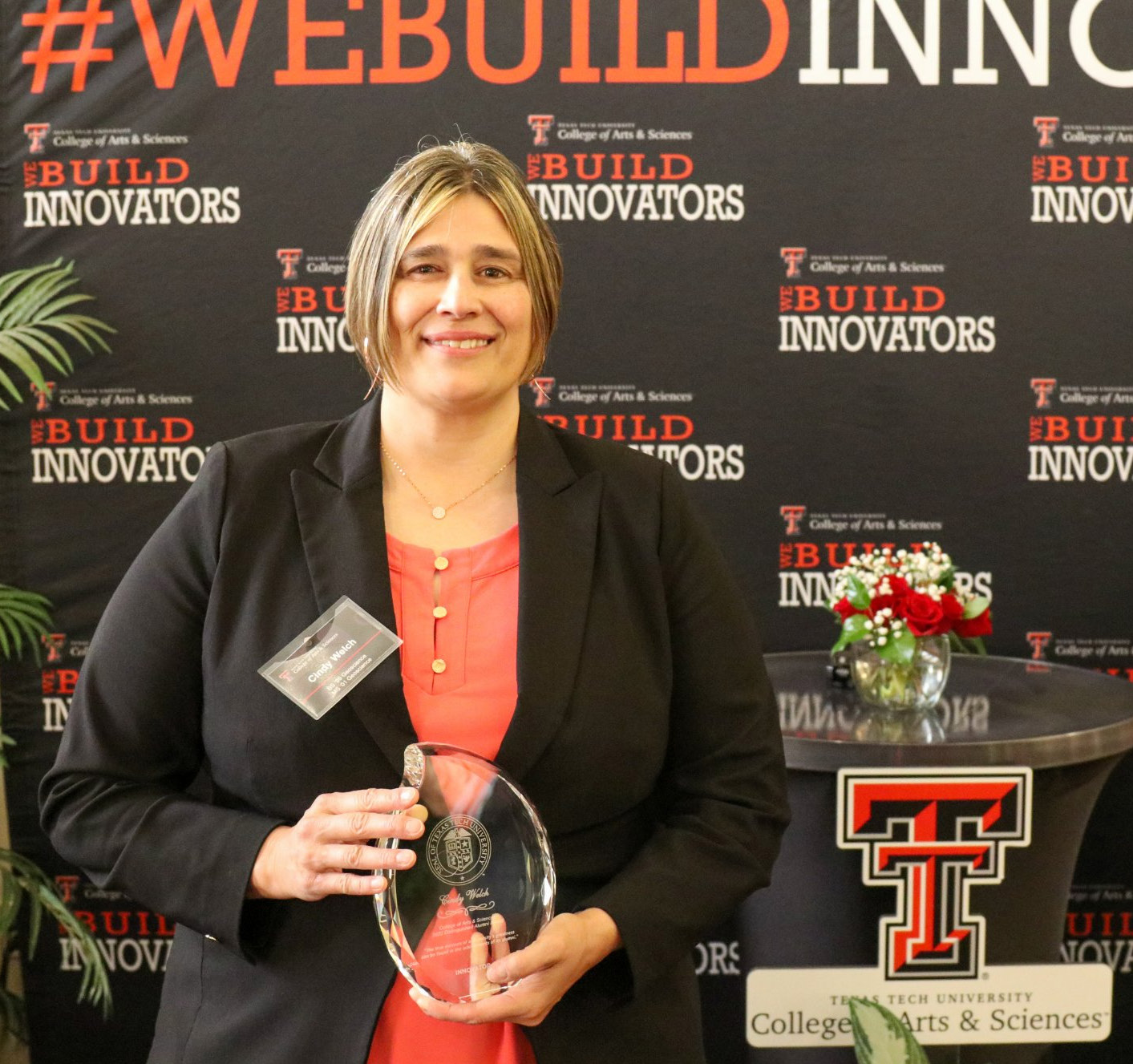
Cindy Welch
Cindy Welch who graduated with an bachelor's degree in Geosciences in 1999 and completed a master's degree also in Geosciences was named a 2022 Arts and Sciences Distingushed Alumni! Since graduating from Texas Tech, Cindy has gone on to become a Texas licensed Professional Geoscientists with over 20 years of experience in the industry. Cindy has worked for companies such as Texaco, and Chevron along with other large independent and private equity firms. Currently, Cindy is a principal partner at Tier 1 Resource Partners. In 2019, Cindy was honored as one of Oil & Gas Investor Magazine's 25 Most Influential Women in Energy which can be found here. Congratulations to Cindy on all of her accomplishments!
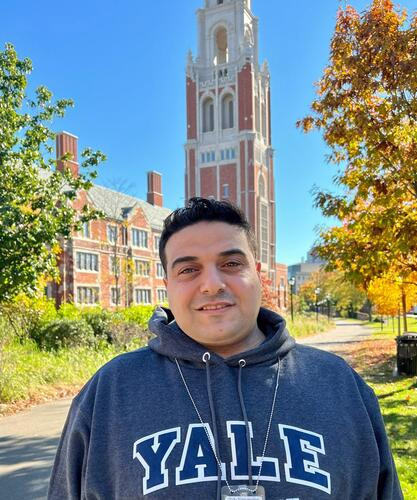
Dr. Tarek Kandakji
Congratulations to Dr. Tarek Kandakji for his appointment as Remote Sensing Specialist and Manager of the Yale Center for Earth Observation at Yale University! Dr. Kandakji earned his Ph.D. in Geosciences in 2020 where he focused on identification and spatio-temporal analysis of dust point sources in the southwestern United States using remote sensing, and applying robotics in wind erosion studies. To learn more about Dr. Kandakji's appointment and research activities visit the Yale Center for Earth Observation here.
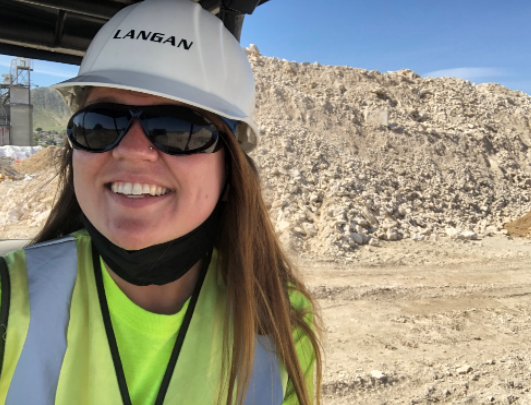
Rachel Owen
Rachel Owen earned a B.S in Geosciences from Texas Tech University in 2016, and continued
on to earn her M.S. in Geosciences at Texas Tech in 2018. During her time at Tech,
she conducted solubility, surface charging, and adsorption studies on pyrolusite with
Dr. Moira Ridley. After graduating in 2018, she began her career in oil and gas remediation
in Midland, Texas.
Rachel is currently working as a Geologist in Southern California. She is assisting
in the remediation and demolition of a decommissioned cement plant. The remediation
entails testing and removing hazardous bi-products of the cement manufacturing process
that are rich in lead, mercury, hexavalent chromium, and arsenic.
Rachel currently lives with her fiancé, Eduardo in Huntington Beach, California. In
her free time, she enjoys playing guitar, hiking in the San Gabriel Mountains, and
roller blading at the beach.
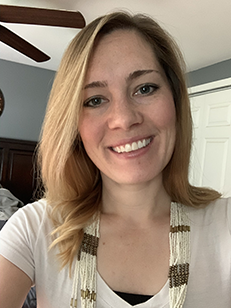
Danielle Nagele Ph.D.
Danielle Nagele earned her BS in Meteorology from Millersville University and then
her MS in Atmospheric Sciences from Texas Tech University (MS ATMO '10). Her thesis
research involved mapping and analyzing lightning data within tropical systems. While
at Texas Tech, Danielle also participated in the Verification of the Origins of Rotation
in Tornadoes (VORTEX II) experiment. During this fieldwork, she deployed meteorological
instrumentation ahead of approaching tornadic supercells in an effort to better understand
convective processes and tornadogenesis. Texas Tech will forever hold a special place
in her heart – she fulfilled a childhood dream to “chase” tornadoes, all while supporting
exciting scientific advancements.
While Danielle has always been deeply interested in the physical dynamics of weather, she is also passionate about how people understand and act on this scientific information. As such, she chose to pursue her Ph.D. in Disaster Science and Management at the University of Delaware Disaster Research Center (DRC). During her time at the DRC, Danielle performed research on public response to forecasts, warnings, and extreme weather events. For her dissertation, she focused on the culture among organizations in an Integrated Warning Team (IWT); she conducted interviews and field observations with National Weather Service (NWS) forecasters and their partners.
Danielle currently serves as the NWS Public Weather Program Coordinator where she
develops strategies and policies to enhance the service capacity of NWS public weather
operations for hazards such as extreme heat, high winds and dust storms. She also
serves as the Hazard Simplification Project Senior Advisor. In this role, Danielle
supports the transition of research to operations for social science-informed improvements
to the NWS “Watch, Warning, Advisory” system. This has involved numerous public surveys,
as well as focus groups with NWS partners and forecasters to assess proposed changes.
Danielle lives with her husband, son, and two dogs in Maryland. She loves to travel
– her favorite trips have been to Costa Rica, Norway, and the Mediterranean coastline.
Danielle also enjoys drawing pencil portraits and landscapes, listening to audio books,
and playing video games.
Chloe Beddingfield Ph.D.
Chloe Beddingfield is a native Texan from Austin who enrolled in Texas Tech University in fall 2007 and graduated in Spring 2010. She earned a Bachelor's in Geosciences: Geology with a Chemistry minor. While at Texas Tech, Chloe's undergraduate research project with Dr. Aaron Yoshinobu involved investigating the tectonics and geomorphology of features on Saturn's moon, Enceladus.
After leaving Texas Tech, Chloe accepted a research assistantship at University of Tennessee where she received her Ph.D. in Geology in summer 2015 under the mentorship of Dr. Devon Burr. Their research included the investigation of impact craters and geodynamics of the Uranian and Saturian icy moons (Miranda, Dione, Tethys, Rhea). Following the completion of her PhD, Chloe then spend two years as a post doc with Dr. Jeff Moersch and Dr. Hap McSween studying thermal properties of impact craters on Mars using the THEMIS (Thermal Emission Imaging System) instrument onboard the Mars Odyssey spacecraft.
Currently, Chloe works for NASA as Research Scientist at The SETI Institute and NASA Ames Research Center in the Bay Area, California where she started in a CO-OP position. Being a research scientist allows for her to be involved with NASA mission work with the New Horizons extended mission to Kuiper belt object MU69 (Ultima Thule) and the OSIRIS-REx mission to asteroid Bennu. Chloe uses processing techniques to enhance available spacecraft images to derive digital elevation models of surfaces, and derive shape models of irregular bodies to carry out her research while contributing to other projects. In addition, she is working with the Regolith Development Working Group mapping regolith using the most recent OCAMS (OSIRIS-REx Camera Suite) images of asteroid Bennu as well as identifying other geologic features on Bennu.
As a member of the New Horizons team, Chloe has helped develop a method to create a shape model for Ultima Thule. Other recent work includes investigating mass movement features on Pluto's moon Charon. She investigated the properties of large landslides on Pluto's moon Charon and found they are “long run-out landslides” which underwent friction reduction during motion.
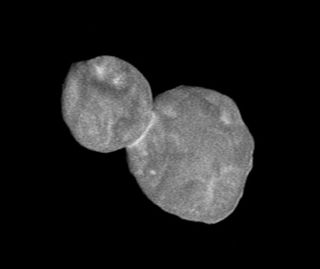
Ultima Thule captured by NASA New Horizon's spaccecraft Jan 1, 2019.
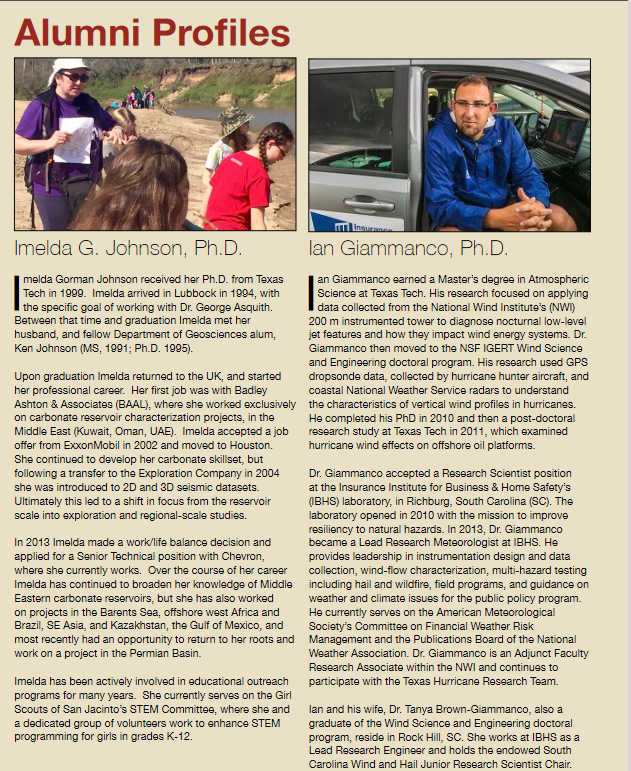
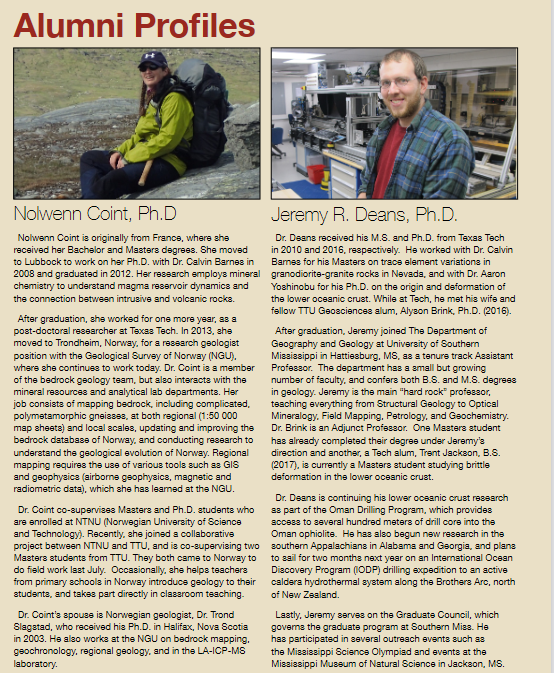
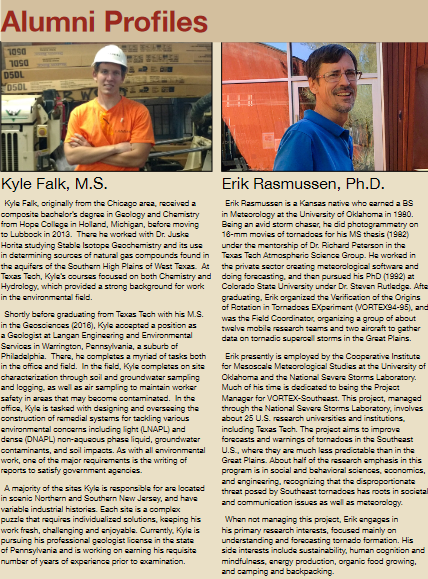
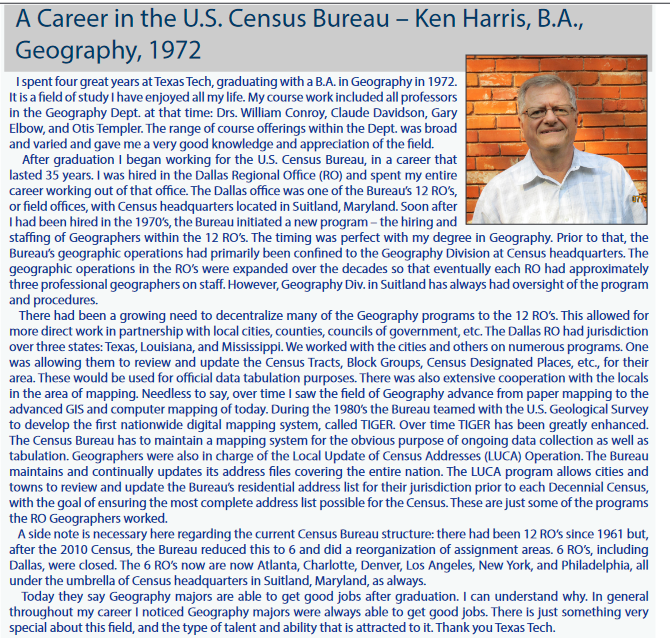
Department of Geosciences
-
Address
Department of Geosciences, 1200 Memorial Circle, Lubbock, TX 79409-1053 -
Phone
806.742.3102 -
Email
geosciences@ttu.edu

